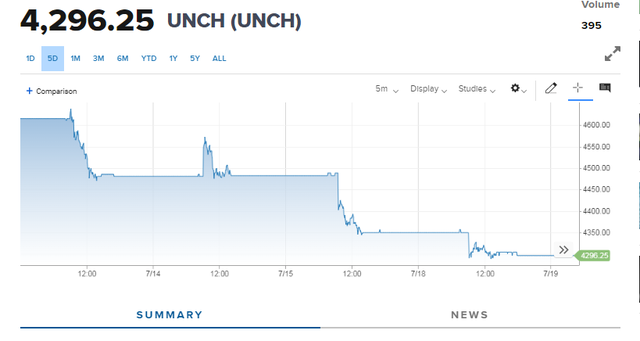Pay Attention to the Risk of Receiving Foreign Exchange!
2022-07-21 09:17:18
hebei leimande
Pay Attention to the Risk of Receiving Foreign Exchange!
The currency depreciated sharply, the exchange rate hit a record low, and more than 70 countries faced a crisis. Recently, affected by the aggressive interest rate hike by the Federal Reserve to curb inflation, the exchange rate of the US dollar against most currencies in the world has continued to rise, and the currencies of emerging market countries are under particularly obvious depreciation pressure.
Sri Lanka has experienced debt default, currency devaluation, skyrocketing inflation, the bankruptcy of the country, and the resignation of both presidents and prime ministers. The United Nations has said a deepening food, fuel, and financial crisis could destabilize poorer countries, leading more than 70 countries to default on their debts, following the example of Sri Lanka.
Inflationary pressures intensify in Colombia
CCTV Finance reported that since the end of May this year, the Colombian peso has depreciated sharply for six consecutive weeks. In Colombia, Latin America's fourth-largest economy, the Colombian peso has fallen against the U.S. dollar for the past seven sessions.
Intraday trading briefly broke through an all-time low of 4,600 pesos per dollar. According to official data released by Colombia, the country's annualized inflation rate in June reached more than 9%.

Colombian financial analyst Julio Ceza Lomero sees the strengthening of the U.S. dollar globally as a function of interest rate hikes. The U.S. central bank, the Federal Reserve, began its rate-hike cycle in March 2022, and it is raising rates at a much faster rate than in the past.
The strong dollar policy has caused exchange rate fluctuations around the world, especially in emerging markets, which may cause some overseas investors to withdraw from emerging markets. This means that international capital investment is more willing to flow to the US market.
Julio also emphasized that at least 33% of the foreign debts currently held by the Colombian government are foreign debts in US dollars. Under the influence of the strong dollar, the peso continues to depreciate, which means that the Colombian government has taken on more foreign debts and increased the government fiscal deficit.
Julio further explained that when the dollar price goes up, everything becomes more expensive for us because we import a lot of stuff. The first effect of the devaluation of the peso is inflation; the second is the poor performance of the fiscal account, and the third is the slowdown in growth due to having to control imports.
The latest report released by the National Bank of Colombia shows that the impact of the recent depreciation of the peso will be reflected in 2 to 3 months, manifested in the rise of various domestic prices, which will also exacerbate the inflationary pressure faced by Colombia in the second half of the year. Inflation is expected to hit an all-time high of 9.32% by the end of the year.
To curb inflation, Colombian President Duque signed a decree in mid-July to reduce or exempt some import tariffs on agricultural and industrial products. The measure is expected to take effect by June 2024.
The debt crisis in many countries is not optimistic.
Turkey: Since March, the Turkish exchange rate has fallen to an all-time low-an all-time low of 17.1983 per dollar was broken earlier. In another sign that rattled investors, even more, Turkey's credit default swaps rose 24 basis points to 816 basis points, the highest level since 2008.
Inflation rose to nearly 75% in May. This rate of inflation is currently the highest among G20 members and the sixth highest globally. Independent economists say real inflation in Turkey is likely to be much higher.
Egypt: Middle Eastern power Egypt is also at risk. The rise in food, fertilizer, and energy prices caused by the conflict between Russia and Ukraine has caused Egypt's economic situation to deteriorate sharply, seriously affecting the normal life of the Egyptian people.
Egypt is the world's largest importer of wheat, with 59.7% from Russia and 22.3% from Ukraine. Soaring wheat prices caused Egypt's unsubsidized food prices to jump 50 percent in the short term, and inflation jumped to 15.3 percent in May from 4.8 percent a year earlier.
The Egyptian government recently announced that the current wheat stocks are only enough to last for 2 months and 18 days.
Argentina: Since March this year, demonstrations have erupted from time to time in Buenos Aires, the capital of Argentina, to protest rising prices and foreign debt. Argentina is facing an inflation crisis. Coupled with the devaluation of the national currency and the soaring cost of imported natural gas, its foreign exchange reserves have officially bottomed out.
It is reported that Argentina has lost 99% of its value against the dollar in the past decade by printing useless pesos. During the same period, Argentina's money supply, including all currencies in circulation, surged by 2,328.09% over a decade.
Because of the current global economic situation, it is necessary to guard against the risk of buyers abandoning goods and receiving foreign exchange to avoid losses.










